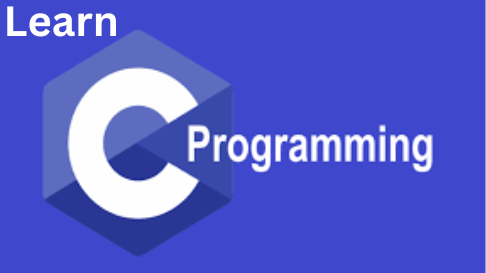Tokens in C? with example
Tokens in C programming are fundamental building blocks that make up the source code of a program. They are the smallest units of a C program and include keywords, identifiers, constants, operators, and punctuation marks.Types of Tokens in C
1. Keywords:
Keywords are reserved words in C that have predefined meanings and cannot be used as identifiers. Examples of C keywords include int, if, while, for, return, and switch.C language supports 32 keywords given below:| auto | double | int | struct |
| break | else | long | switch |
| case | enum | register | typedef |
| char | extern | return | union |
| const | float | short | unsigned |
| continue | for | signed | void |
| default | goto | sizeof | volatile |
| do | if | static | while |
Example:
cint main() {
if (x > 0) {
return 1;
}
return 0;
}In the above code, int, if, and return are keywords.2. Identifiers:
Identifiers are names given to variables, functions, arrays, and other user-defined entities. They must start with a letter or underscore and can be followed by letters, digits, or underscores.Example:
cint age;
float salary;
void calculateTotalAmount();In the code above, age, salary, and calculateTotalAmount are identifiers.3. Constants:
Constants are values that do not change during program execution. There are various types of constants in C:| Constant | Example |
| Integer constant | 10, 11, 34, etc. |
| Floating-point constant | 45.6, 67.8, 11.2, etc. |
| Octal constant | 011, 088, 022, etc. |
| Hexadecimal constant | 0x1a, 0x4b, 0x6b, etc. |
| Character constant | 'a', 'b', 'c', etc. |
| String constant | "java", "c++", ".net", etc. |
1.Integer constants:
c42
0xFF // Hexadecimal
077 // Octal2.Floating-point constants:
c3.14
2.0e-5 3.Character constants:
c'A'
'\n' // Newline character 4.String literals:
c"Hello, World!"In the code examples above, 42, 3.14, 'A', and "Hello, World!" are constants.
4. Operators:
C provides various operators for performing operations on data. These include arithmetic, relational, logical, and bitwise operators.Depending on the number of operands, operators are classified as follows:Unary Operator
Binary Operator:
The binary operator is an operator applied between two operands. The following is the list of the binary operators:1. Arithmetic Operators
2. Relational Operators
3. Shift Operators
4. Logical Operators
5. Bitwise Operators
6. Conditional Operators
7. Assignment Operator
8. Misc Operator
Examples:
cint sum = a + b; // Addition operator
if (x == y) // Equality operator
{
result = 1;
}In the code above, +, ==, and = are operators.5. Punctuation:
Punctuation symbols such as parentheses, braces, semicolons, and commas are used to structure C code and separate different elements.
Examples:
cfor (int i = 0; i < 10; i++) {
printf("Hello, World!\n");
}In this code, (), {}, ;, and , are punctuation marks.
6. Preprocessor Directives:
Preprocessor directives begin with a # symbol and are used to instruct the C preprocessor to perform actions like including header files and defining macros.Examples:
c#include <stdio.h>
#define MAX_VALUE 100In this code, #include and #define are preprocessor directives.7. Comments:
Comments are not considered tokens but are essential for adding human-readable explanations within the code. There are two types of comments in C: single-line comments and multi-line comments.Example:
c// This is a single-line comment
/*
This is a
multi-line comment
*/
Comments are used for documentation and do not affect the program's execution.
In summary, tokens in C programming are the smallest units of a program and include keywords, identifiers, constants, operators, punctuation marks, preprocessor directives, and comments. Understanding these tokens is crucial for writing and comprehending C code effectively.



.png)
.png)
.png)

0 Comments